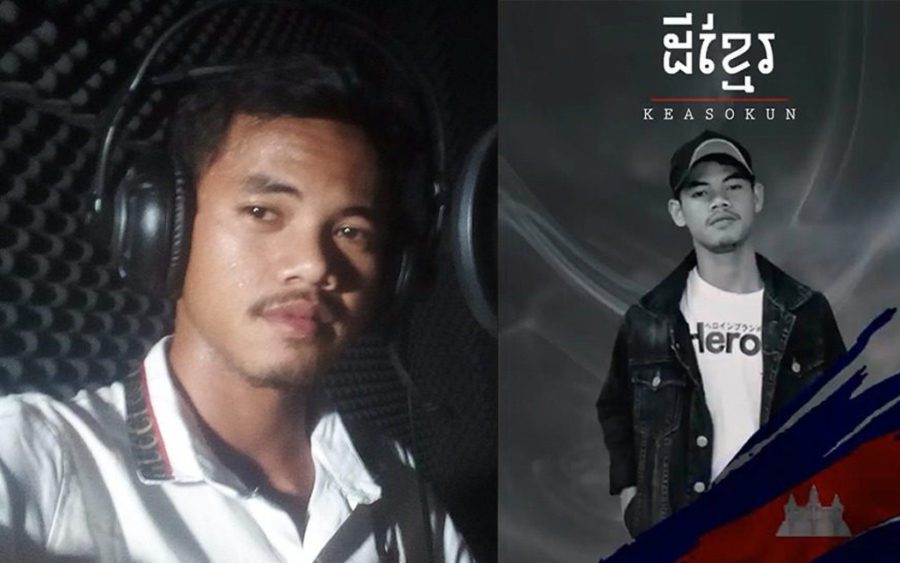Kea Sokun, a young Siem Reap rapper jailed for incitement over his nationalist lyrics, had his yearlong prison sentence upheld by the Appeal Court in Battambang on Wednesday.
Sokun was arrested last September in relation to his song “Dey Khmer,” or Khmer Land, which now has more than 4 million views on YouTube. The song spoke about “the bravery to stand up,” while also warning that “the other race is encroaching” — an apparent reference to long-standing, racially tinged fears related to the Vietnamese border that sparked protests and arrests last year. He was found guilty in late December.
Am Sam Ath, monitoring manager for rights group Licadho, said the NGO provided a lawyer for Sokun at the Appeal Court, which upheld the earlier Siem Reap Provincial Court verdict.
“There were a lot of challenges [made] — the key thing that the lawyer raised about this was the freedom of expression of people, including composing songs and singing songs, and that there was no intention to incite chaos in society or serve anybody’s interest. His intention was to earn money on YouTube,” Sam Ath said.
Sokun was talented, and officials should educate him rather than jail him so he can be an artist that contributes to society, Sam Ath said.
“The prosecutor still kept their stance that the song has an inciting nature and is a crime,” he said. “As civil society, we do not see it as a crime as charged. But we see that he has talent in composing songs and expressing his views.”
Sokun’s sister, Kea Channa, said the family was disappointed by the decision.
“He was just expressing his view about his country and the nation, but instead he was given heavy punishment,” Channa said.
Teang Sambo, spokesperson for the Appeal Court in Battambang, confirmed that the court upheld the verdict.
Earlier this week, the American Bar Association issued a report on the case, in which it said that “[t]he charge of incitement is so broad that the government can apply it in a variety of cases.”
“Together, Articles 494 and 495 form a vague charge that some say is left open to politically motivated misuse,” the association said.
In Sokun’s case, he was “held for an excessive period of time prior to his trial,” the prosecution did not “present any concrete evidence” that his songs actually incited crimes, and it failed “to prove Sokun’s guilt beyond reasonable doubt,” it said.
“The prosecution and court have failed in their legal obligations to perform their roles in finding the truth and providing justice duly in line with Cambodian law and the ICCPR,” or the International Covenant on Civil and Political Rights, the association said, and suggested bail for Sokun during the appeal process, among other recommendations.
The association’s senior staff attorney Waris Husain said the ABA had followed some trials in Cambodia over the past two years, including an espionage trial against two Radio Free Asia journalists and prosecutions against six top labor leaders.
“What we have seen recently is the use of Article 495 incitement to violence/crime being used against human rights defenders and those critical of the government. As the case involving Kea Sokun involved a charge like this, we decided to monitor and analyze the case leading to our fair trial report,” Husain said.
The Justice Ministry has repeatedly defended the courts’ independence and due process, and officials have said that free expression is restricted if it is ill-intended or harms society. The Culture Ministry has previously said in the context of Sokun’s case that it works to educate artists who produce improper works but takes stronger action if they do not listen.
“When it comes to arrests and such, it means that you’ve gone beyond the redline, and it’s come to affect social order and public order,” Culture Ministry spokesperson Long Bunna Sireyvath previously said.
Additional reporting by Michael Dickison













